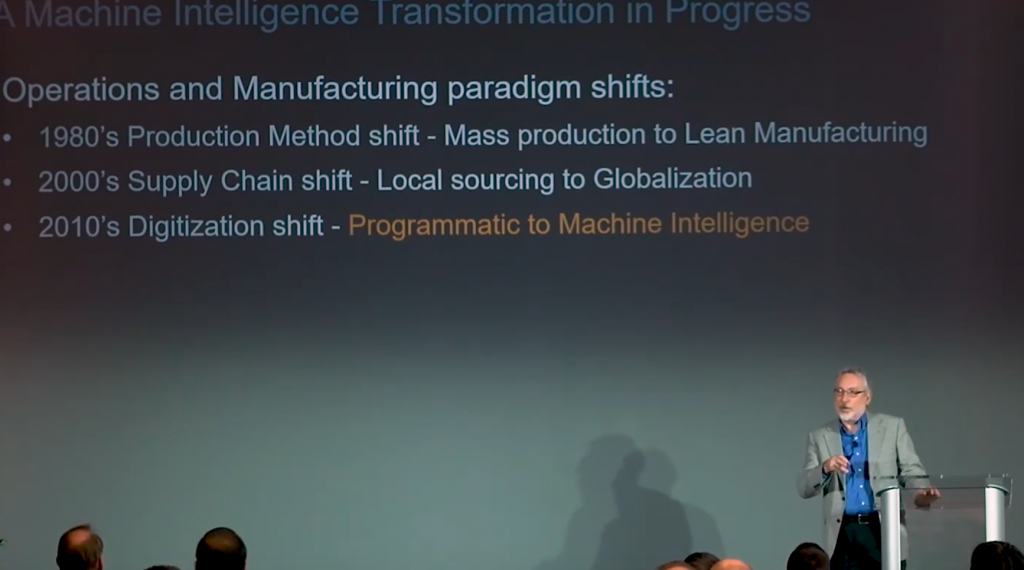Join us this May 4th, 2022 for the first Machine Intelligence for Manufacturing and Operations Committee Symposium on the topic: Operationalizing Your Enterprise’s AI Strategy.
The cutting edge research on AI at MIT is changing the traditional paradigms of manufacturing & operations; both old and new businesses must adapt fast. In our symposium, we will explore how AI is used to make decisions and learn about the technical and organizational readiness necessary to implement it at your firm. We will answer questions such as:
- What are the newest advances in the field?
- What are the benefits from becoming a data-centric firm?
- How do you transition the company, both technically and culturally, to take advantage of AI?
Attendees will have the opportunity to interact with each other, MIT students leading the charge in the field, and the amazing roster of speakers we’ve planned. Both from academia and industry, we’re inviting speakers from the leading AI/ ML, computer vision and data firms, MIT’s Computer Science & Artificial Intelligence Laboratory and MIT’s Operation Research Center. The event will run for a full day where lunch, appetizers and beverages will be provided. Lastly, we will hold a poster session throughout the day, where students will compete for a price and attendees will get to vote on their favorites.
Don’t miss a chance to meet some of the industry’s most-recognized voices and interact with the students that are leading the charge. Subscribe for updates here!
The MIMO Implementation Model is going Live!
The MIMO Implementation Model serves as a guide to facilitate the implementation of Machine Learning (ML) in industry, as well as other analytics projects. It focuses on the challenges specific to actual business implementations, particularly in manufacturing and operations settings, where the magnitude of implementation challenges are often amplified. The model provides a baseline understanding to those who haven’t approached these problems in practice before, but also aims to dive deeper into some of the persistent challenges of implementation. It’s source is the knowledge of the MIT community of students, partners, alumni, and faculty. Recommendations are made mostly for the individual solving a problem with data, but it can also help guide an organization’s leadership to empower their teams with these tools. It’s targeted for LGO interns who can discuss its components with their internship supervisors and faculty advisors, working together to create milestones for the project and identify the resources & support they will need. However, it will hopefully also be a resource for others.
The first LGO ‘23s to start their internships this Spring, several of which are focussed on Machine Learning, are starting to put the model to use. We’re eager to see how it can help them and gather feedback from its use in the field. If you would like to share your experiences implementing Machine Learning in the real world, please let Josh Weisberg (jweisbe@mit.edu) know. We’d love to hear about your successes and lessons learned. Hopefully the Implementation Model will become a growing body of knowledge leveraged by future LGOs for years to come.


